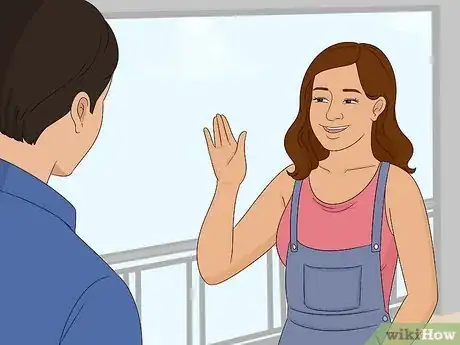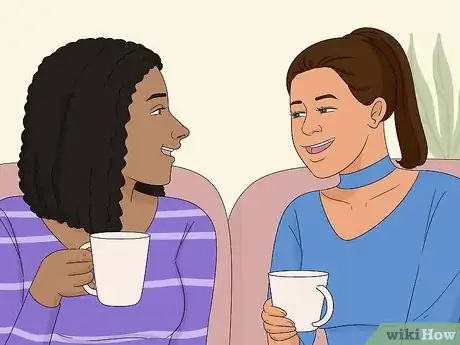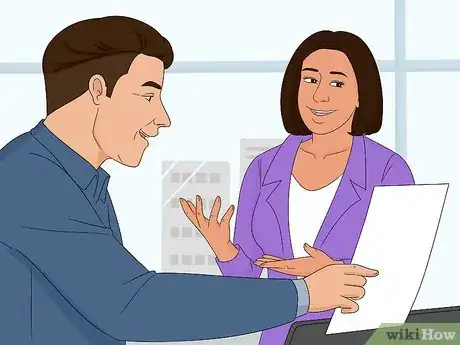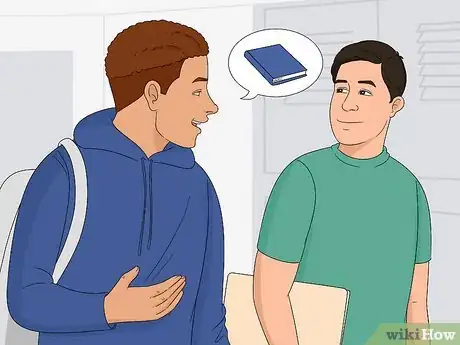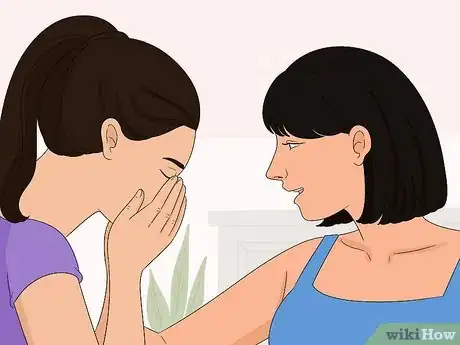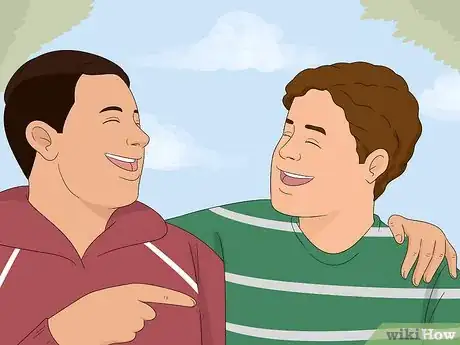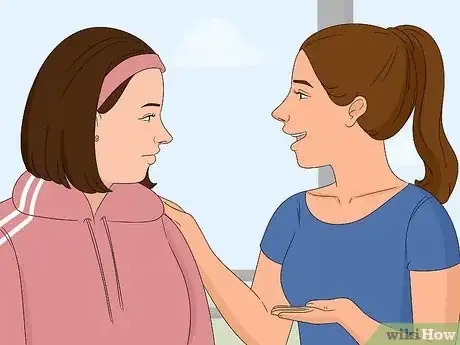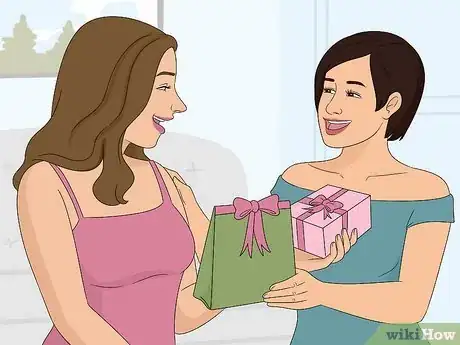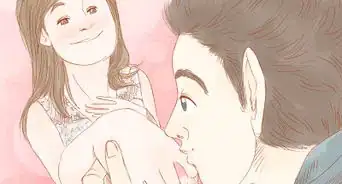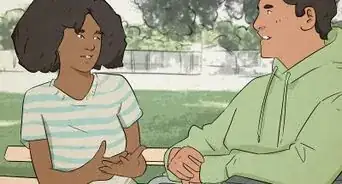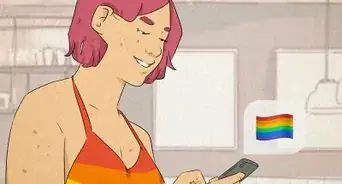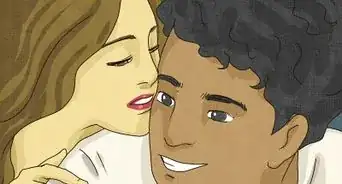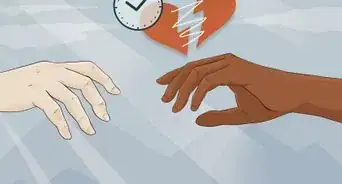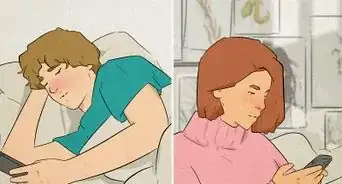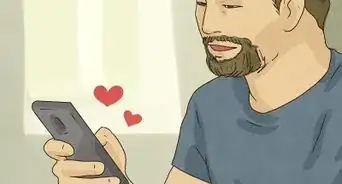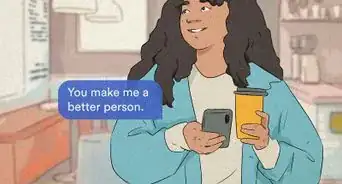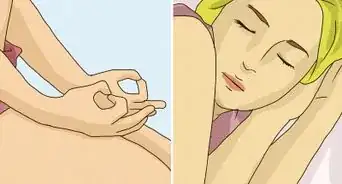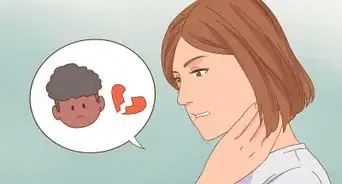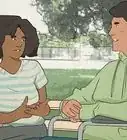This article was co-authored by Cherlyn Chong and by wikiHow staff writer, Hannah Madden. Cherlyn Chong is a breakup recovery and dating coach. With 6 years of experience, she specializes in working with high-achieving professional women who want to get over their exes and find love again. She has experience as an official coach for The League dating app, and has been featured on AskMen, Business Insider, Reuters and HuffPost.
There are 10 references cited in this article, which can be found at the bottom of the page.
This article has been viewed 14,472 times.
As you get to know someone new, the line between acquaintance and friend can start to get blurry. Knowing where you stand with someone can help you figure out the right way to talk to them and how often to reach out. That’s why we’ve written this article to help you figure out the age-old question: is this person my friend, or just an acquaintance?
Steps
What’s the difference between a friend and an acquaintance?
-
1An acquaintance is a person you see every now and then. You might consider your co-workers or a friend of a friend your acquaintance. You see them around often, but you don’t make a ton of effort to hang out with them or get to know them.
- That might sound like a bad thing, but actually, having acquaintances is important! Studies show that people feel happier when they interact with people they only know casually.[1] It makes you feel good to be noticed by someone you might not consider a friend just yet.
-
2A friend is someone you have a deeper connection with. When you’re friends with someone, you know more about them than just the surface level—you’ve opened up to each other at least a little bit, and you’d like to learn more about them over time.[2]
- You probably also make more of an effort to spend time with a friend rather than an acquaintance, although this isn’t always a marker of your relationship. If you’re both super busy, you can still maintain a friendship with someone without seeing them very often.
Signs That Someone Is Just an Acquaintance
-
1You only see them at work or school. With an acquaintance, you probably don’t make an effort to hang out with them. You might only see them when it’s convenient, like when you’re at work or together at school. You probably say hi to each other and exchange pleasantries, but you might not ask them to hang out with you outside of that.[3]
-
2You know some things about them, but not much. You probably know the basic facts: where they work, where they live, and who their partner is. However, since they’re an acquaintance, you probably won’t know much else, like what their long-term goals are or what they like doing to relax.[4]
-
3You haven’t opened up to each other very much. Acquaintances usually don’t talk to each other about deeper subjects. Talking about your feelings and emotions probably hasn’t happened yet, and you might feel a little awkward if you brought anything like that up.[5]
How to Tell if Someone Is a Friend
-
1You hang out with each other often. Studies show that in students and young people, close friends spend almost 1/3 of their waking hours with each other. If you two are friends, you probably both make an effort to see each other often, even if you’re both busy.[6]
- Ask yourself things like, “How many times per week do I see this person?” and, “Do we make an effort to hang out?”
-
2You open up to each other about things. You might talk about your feelings, your emotions, and your long-term goals. This probably doesn’t feel too awkward, since you’re both exchanging info with each other. Friends get to know each other on a deeper level than acquaintances do, so you’ll probably talk more about these things over time. You might ask your friend things like, “How are you feeling today?” or, “How are you really doing?”[7]
- Ask yourself things like, “How much do I trust this person?” and, “How comfortable do I feel around them?”
- There are also different levels of friendships. If you’re starting to open up to each other, you might be moving from casual friends to close friends.
-
3You can joke and laugh with each other. You might feel more comfortable making silly comments or testing out your new one-liner with a friend. Since you two know each other more, you have a sense of what they find funny, which means they’re more like a friend to you.[8]
- Ask yourself something like, “Can I be my true self around this person?”
-
4You care for each other. If you’re close friends, you might even say that you love each other. As your friendship grows, you get closer to them, which makes you care for them even more.[9] You might notice that you listen to them without judgement and support them through bad times when they need you.[10]
- You might ask yourself something like, “How much does this person care about me?”
- When you start caring deeply for each other, you might be moving from close friends to intimate friends.
Signs That Someone Wants to Be Your Friend
-
1They make plans with you. If someone wants to move from being just an acquaintance to something more, they’ll probably ask you to hang out, and they might even do it often. This might be a co-worker inviting you out to happy hour, a friend of a friend texting just you, or your classmate asking for your number so you can hang out after school.[11]
-
2They ask you how you are. And when they ask you, they seem to genuinely care about what you say. Friends care about each other’s well-being, so if someone listens to you vent about a bad day or gush about your new boo, it probably means they like you as a friend.[12]
-
3They put in as much (or more) effort into the relationship as you do. If you ask them to hang out one day, they’ll ask you the next time. If you grab them a coffee on the way to work, they’ll buy you lunch that day. Someone who really wants to be your friend will put in the work to show they care about you instead of just taking and never giving back.[13]
- You can usually tell that someone doesn’t want to be your friend if they blow you off or accept things you give them without gratitude. This could mean that they’re just putting up with you, and that they don’t actually want to deepen your connection.
References
- ↑ https://hbr.org/2020/04/why-you-miss-those-casual-friends-so-much
- ↑ https://news.ku.edu/2018/03/06/study-reveals-number-hours-it-takes-make-friend
- ↑ https://www.bbc.com/worklife/article/20200701-why-your-weak-tie-friendships-may-mean-more-than-you-think
- ↑ http://static1.squarespace.com/static/53e031b0e4b09fb957e34b32/t/5519dcebe4b0972a561626c8/1427758315232/How+to+make+the+friends+you+always+wanted+.pdf
- ↑ http://static1.squarespace.com/static/53e031b0e4b09fb957e34b32/t/5519dcebe4b0972a561626c8/1427758315232/How+to+make+the+friends+you+always+wanted+.pdf
- ↑ https://news.ku.edu/2018/03/06/study-reveals-number-hours-it-takes-make-friend
- ↑ https://www.mayoclinic.org/healthy-lifestyle/adult-health/in-depth/friendships/art-20044860
- ↑ https://psycnet.apa.org/record/1992-23045-001
- ↑ https://psychcentral.com/lib/turning-acquaintances-into-friends#3
- ↑ https://www.psychologytoday.com/us/blog/lifetime-connections/201503/the-13-essential-traits-good-friends
- ↑ https://www.mayoclinic.org/healthy-lifestyle/adult-health/in-depth/friendships/art-20044860
- ↑ https://www.joinonelove.org/learn/5-requirements-for-a-strong-friendship/
- ↑ https://health.clevelandclinic.org/one-sided-relationships/
